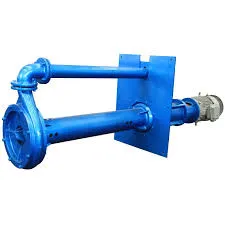English
- Afrikaans
- Albanian
- Amharic
- Arabic
- Armenian
- Azerbaijani
- Basque
- Belarusian
- Bengali
- Bosnian
- Bulgarian
- Catalan
- Cebuano
- Corsican
- Croatian
- Czech
- Danish
- Dutch
- English
- Esperanto
- Estonian
- Finnish
- French
- Frisian
- Galician
- Georgian
- German
- Greek
- Gujarati
- Haitian Creole
- hausa
- hawaiian
- Hebrew
- Hindi
- Miao
- Hungarian
- Icelandic
- igbo
- Indonesian
- irish
- Italian
- Japanese
- Javanese
- Kannada
- kazakh
- Khmer
- Rwandese
- Korean
- Kurdish
- Kyrgyz
- Lao
- Latin
- Latvian
- Lithuanian
- Luxembourgish
- Macedonian
- Malgashi
- Malay
- Malayalam
- Maltese
- Maori
- Marathi
- Mongolian
- Myanmar
- Nepali
- Norwegian
- Norwegian
- Occitan
- Pashto
- Persian
- Polish
- Portuguese
- Punjabi
- Romanian
- Russian
- Samoan
- Scottish Gaelic
- Serbian
- Sesotho
- Shona
- Sindhi
- Sinhala
- Slovak
- Slovenian
- Somali
- Spanish
- Sundanese
- Swahili
- Swedish
- Tagalog
- Tajik
- Tamil
- Tatar
- Telugu
- Thai
- Turkish
- Turkmen
- Ukrainian
- Urdu
- Uighur
- Uzbek
- Vietnamese
- Welsh
- Bantu
- Yiddish
- Yoruba
- Zulu
Telephone: +86 13120555503
Email: frank@cypump.com
Nov . 25, 2024 05:20 Back to list
Understanding the Function and Purpose of an Effluent Pump in Wastewater Management
What is an Effluent Pump?
Effluent pumps play a crucial role in waste management systems, particularly in decentralized sewage processing environments. An effluent pump is designed to move wastewater that has already been partially treated along with any remaining solids from a septic tank, graywater system, or other wastewater treatment facilities. Unlike sewage pumps, which are designed for handling raw sewage, effluent pumps are specifically engineered to manage treated effluent—this includes wastewater from sinks, showers, and dishwashers, making them essential for residential and commercial setups alike.
How Does an Effluent Pump Work?
Effluent pumps operate using an electric motor and a system of impellers that create suction to pull wastewater from a designated source. The wastewater is then forced through a discharge pipe, often leading to a leach field, a secondary treatment system, or another location for further processing or disposal. These pumps are typically submersible, meaning they are positioned underwater within a sump pit or tank. This design helps to keep noise levels down and protects the pump mechanism from external elements.
Key Features of Effluent Pumps
1. Durability Effluent pumps are built with robust materials to withstand corrosive substances present in wastewater, ensuring longevity and reliable performance.
3. Varied Capacity Effluent pumps come in different capacities to accommodate various system sizes. Choosing the right pump entails understanding the flow rate and the distance the effluent needs to be pumped.
what is an effluent pump

4. Efficient Solids Handling Most effluent pumps can handle small solids, such as hair and food debris, without clogging, which is crucial for maintaining the seamless operation of wastewater systems.
Applications of Effluent Pumps
Effluent pumps are essential in various scenarios, including
- Septic Systems They transport treated waste from a septic tank to a dispersal field, preventing potential overflow and environmental contamination. - Graywater Systems Used in systems that recycle bath and laundry water for irrigation or toilet flushing. - Residential and Commercial Buildings Useful in buildings where plumbing must push wastewater uphill, such as basements or lower-level apartments.
Maintenance Considerations
To ensure the longevity and efficiency of an effluent pump, regular maintenance is key. This includes cleaning the filter screens, checking electrical connections, and inspecting the impeller for damage or wear. Monitoring the pump’s operation for unusual noises or vibrations can also help catch potential issues before they escalate.
In conclusion, effluent pumps are integral components of modern wastewater management systems. By efficiently moving treated effluent to its next destination, these pumps help maintain environmental health and facilitate effective waste disposal. Understanding their function and applications can lead to better decision-making for both residential and commercial waste management setups. Whether managing a domestic septic system or overseeing a large-scale wastewater treatment plant, knowledge about effluent pumps can aid in effective system design and maintenance.
-
ISG Series Vertical Pipeline Pump - Chi Yuan Pumps Co., LTD.|High Efficiency, Energy Saving, Low Noise
NewsJul.30,2025
-
ISG Series Vertical Pipeline Pump- Chi Yuan Pumps|High Efficiency&Low Noise
NewsJul.30,2025
-
ISG Series Vertical Pipeline Pump-Chi Yuan Pumps Co., LTD.|High Efficiency&Energy Conservation
NewsJul.30,2025
-
ISG Series Vertical Pipeline Pump - Chi Yuan Pumps Co., LTD.|Advanced Hydraulic Design&Energy-Efficient Solutions
NewsJul.30,2025
-
ISG Series Vertical Pipeline Pump - Chi Yuan Pumps Co., LTD.
NewsJul.30,2025
-
ISG Series Vertical Pipeline Pump - Chi Yuan Pumps Co., LTD.|energy-efficient fluid handling&industrial durability
NewsJul.30,2025










